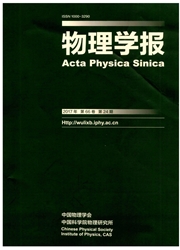

 中文摘要:
中文摘要:
用Co和Sb作为初始原料,通过机械合金化(mechanical alloying,MA)的方法合成了CoSb3,并系统研究了MA转速和MA时间对MA过程中固相反应的影响.XRD结果表明,相同MA转速下,CoSb3的量随MA时间的延长而增多,但是MA时间过长会导致大量CoSb2的生成,甚至诱发CoSb3分解为CoSb2和非晶态Sb.而提高MA转速,只能缩短固相反应的发生时间,而不会改变整个固相反应趋势.对于特定的状态所对应的MA转速和MA时间满足ω^3.8t=C(常数)关系,这种MA转速和MA时间的等效性,说明MA过程中能量的积累.并从非平衡热力学的角度,解释了MA过程的固相反应机理.
 英文摘要:
英文摘要:
CoSb3 powders were synthesized by mechanical alloying (MA) with Co and Sb powders as starting materials. The influence of milling speed and duration on the solid reaction were systematically studied. The XRD results indicated that the CoSb3 phase increased with prolonged MA-time, but extensive MA resulted in the appearance of CoSb2 and the decomposition of CoSb3 to CoSb2 and amorphous Sb at a constant MA-speed. Increasing the MA-speed can shorten the incubation time of the reaction, but doesn't influence the MA solid reactions themselves. For MA processes that give a specific state of alloying, the MA-speed and the MA-time should satisfy the relationship: ω^3.8 t = C(constant), which expresses the relationship of equivalency between MA-speed and MA-time, indicating that the supplied energy is being accumulated during MA. The MA mechanism concerning the formation of CoSb3 has been discussed on the basis of MA from a viewpoint of non-equilibrium thermodynamics.
 同期刊论文项目
同期刊论文项目
 同项目期刊论文
同项目期刊论文
 期刊信息
期刊信息
